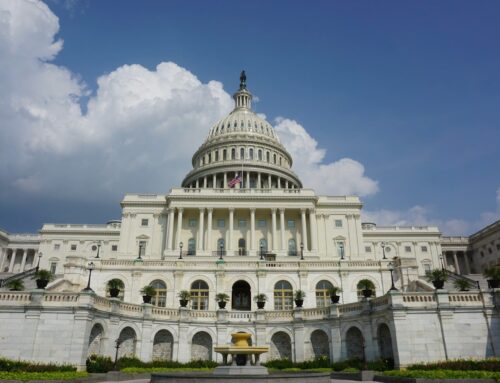Nothing good comes from the government shutting down.
Let’s start with the obvious and immediate impact. Much of the government is not operating today. Hundreds of thousands of people are not working, not earning the money they depend on to pay their mortgage, put food on the table or pay their bills. And we know from the past that the shutdown is not saving taxpayers money.
In addition, putting that many people out of work is bad for the economy. In the Washington D.C. area alone, the shutdown is expected to cost more than $200 million per day in lost economic activity, on top of the $80 million (or more) per day of the shutdown itself.
No new political facts or alliances have been revealed. Today, as was true last week and last election day, many Republicans (both members of Congress and voters) hate Obamacare and oppose the president. On the other hand, many Democrats feel proud of the Affordable Care Act and support the president.
Like the law or hate the law, it is the law. Opponents of the legislation fought Obamacare in the courts and the Affordable Care Act was largely deemed constitutional. Tuesday morning, the health care marketplaces created by the legislation opened for business. Lawmakers can and should continue their fight against the legislation if they so desire, but as it relates to funding government, it’s a side show. So while the government shuts down, Obamacare keeps going.
And let’s remember exactly what Congress is fighting about: whether or not to pass a “cle.png” bill that will simply fund the government for 6 weeks or 10 weeks at the same levels as it was funded in 2013. The reason we need this continuing resolution is because, once again, Congress did not pass any of the dozen spending bills to fund government before the ball dropped on fiscal year 2013 at midnight yesterday. This reprieve is designed to allow Congress to develop a spending plan for the rest of fiscal year 2014.
And what will it take to fund the remainder of the fiscal year? It will require Congress to pass bills that reflect the spending caps they imposed upon themselves in 2011 in the Budget Control Act or to bust the caps and live with the just plain stupid across the board cuts in the form of the so-called sequester. Or (and this is really wishful thinking) come up with alternative deficit reduction measures to offset those cuts.
Unfortunately, there is almost no chance the bills funding each department of the federal government will pass separately, allowing for debate and amendments about the issues of importance to each department. When Congress emerges from this current crisis and lurches toward the next, the most likely scenario is also the least flexible: the funding for all departments and agencies will be placed in one, enormous, “omnibus” spending bill. Funding for National Park rangers, satellite programs of the National Reconnaissance Office and Head Start will all be wrapped up together. Oh, and there will probably be more than a few special interest handouts stuffed in it. Each Member of Congress will then be presented with a stark choice: Yes or no. Up or down. Take it or leave it.
If I were betting a mortgage payment, I would guess this vote will not take place until mere hours before the next deadline – when whatever continuing resolution that does get passed is about to expire. Unfortunately, at the moment, Congress is betting with every federal employee’s mortgage payment.











Get Social